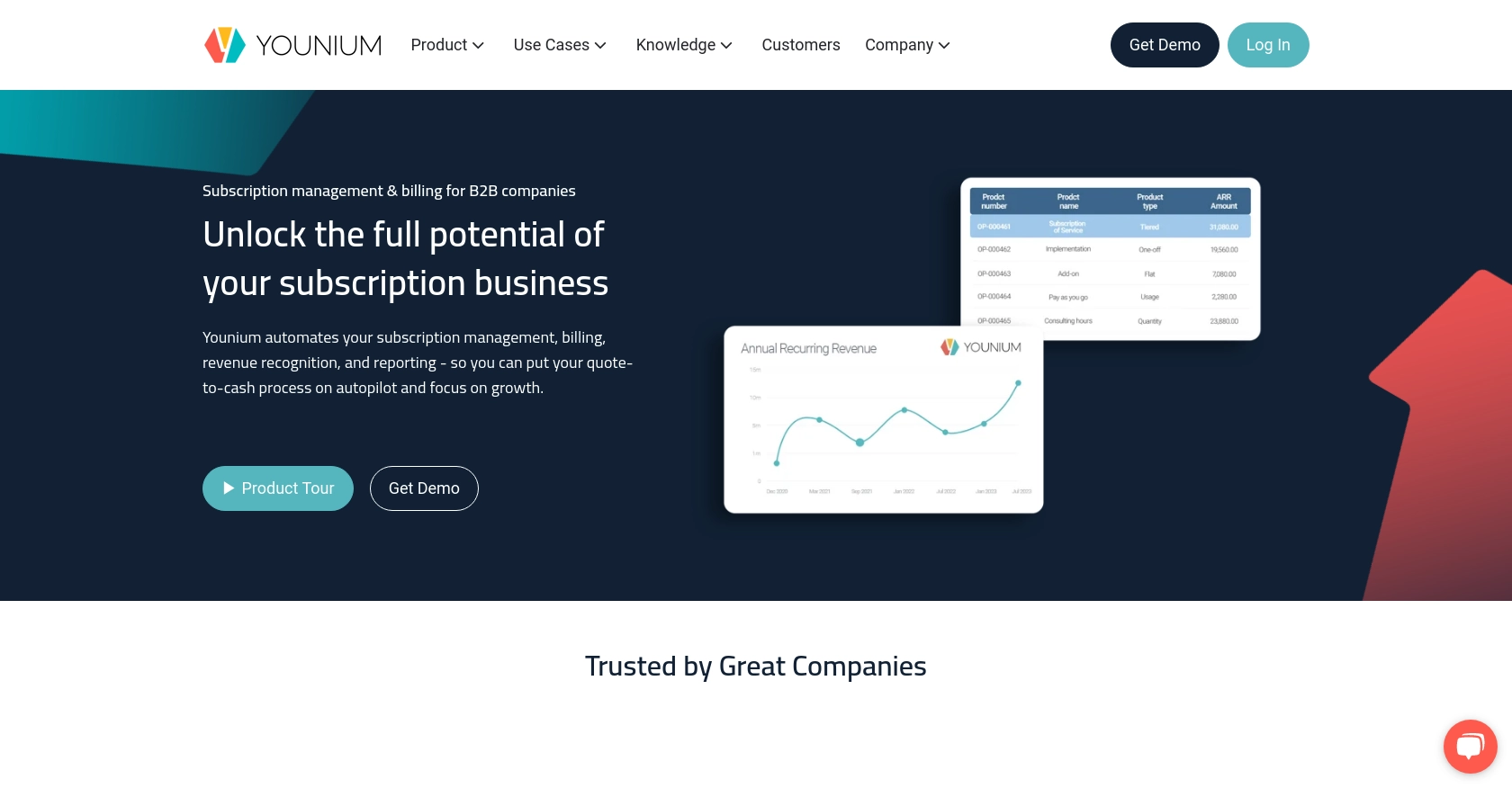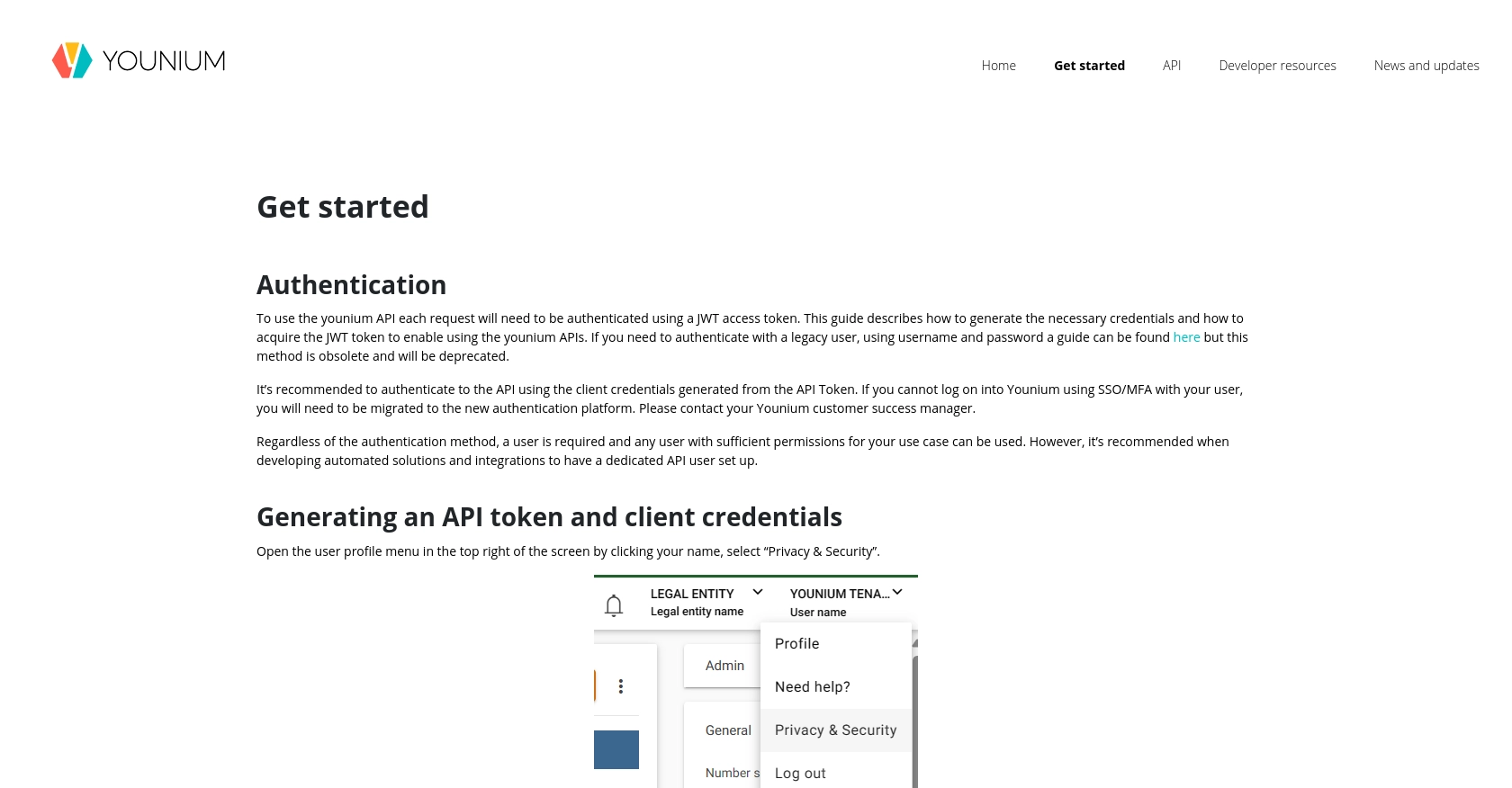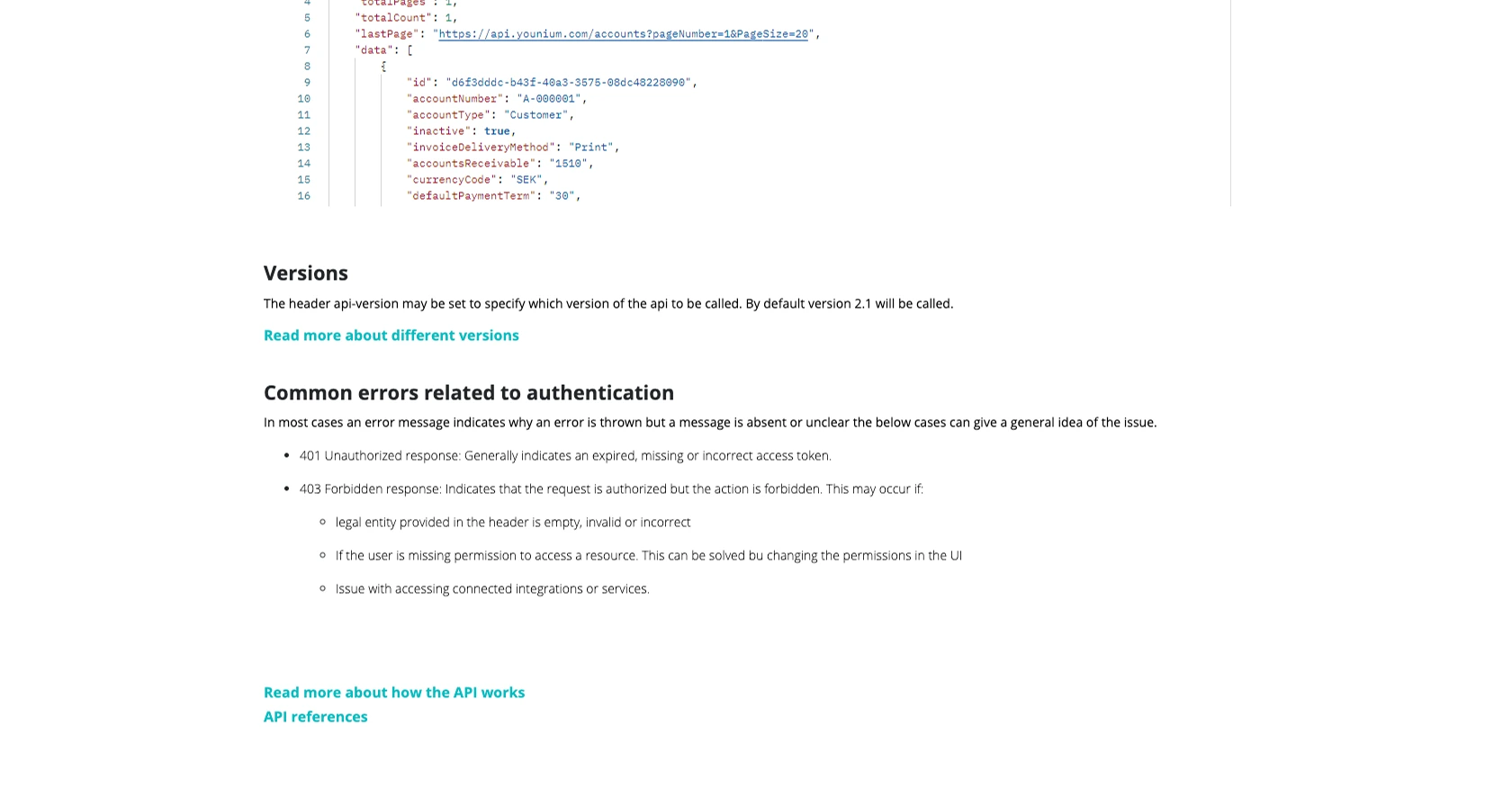Using the Younium API to Get Products (with Python examples)

Introduction to Younium API for Product Management
Younium is a comprehensive subscription management platform designed to streamline billing and financial operations for B2B SaaS companies. It offers a robust set of tools to manage subscriptions, invoicing, and financial reporting, making it an essential tool for businesses looking to optimize their revenue operations.
Integrating with the Younium API allows developers to automate and enhance product management processes. For example, you can use the API to retrieve detailed product information, enabling seamless synchronization of product catalogs between Younium and your internal systems. This integration can significantly improve efficiency by reducing manual data entry and ensuring data consistency across platforms.
Setting Up Your Younium Sandbox Account for API Integration
Before you can start using the Younium API to manage products, you need to set up a sandbox account. This environment allows you to test API interactions without affecting your live data, ensuring a safe space for development and experimentation.
Creating a Younium Sandbox Account
If you don't already have a Younium account, you can sign up for a sandbox account on the Younium website. This account will provide you with the necessary environment to test API calls and integrations.
- Visit the Younium Developer Portal.
- Follow the instructions to create a sandbox account.
- Once your account is created, log in to access the sandbox environment.
Generating API Credentials for Younium
To authenticate API requests, you'll need to generate API credentials. Younium uses JWT access tokens for authentication, which require client credentials.
- Log in to your Younium account and open the user profile menu by clicking your name in the top right corner.
- Select “Privacy & Security” from the dropdown menu.
- Navigate to “Personal Tokens” and click “Generate Token”.
- Provide a relevant description and click “Create”.
- Copy the generated Client ID and Secret Key. These will not be visible again, so store them securely.
Acquiring a JWT Access Token
With your client credentials, you can now generate a JWT access token, which is necessary for making authenticated API calls.
import requests
# Define the endpoint and headers
url = "https://api.sandbox.younium.com/auth/token"
headers = {"Content-Type": "application/json"}
# Define the request body with your client credentials
body = {
"clientId": "Your_Client_ID",
"secret": "Your_Secret_Key"
}
# Make the POST request to acquire the JWT token
response = requests.post(url, json=body, headers=headers)
# Extract the access token from the response
token_data = response.json()
access_token = token_data.get("accessToken")
print("Access Token:", access_token)
Replace Your_Client_ID and Your_Secret_Key with the credentials you generated earlier. The access token is valid for 24 hours, after which you will need to request a new one.
For more details on authentication, refer to the Younium Authentication Documentation.

sbb-itb-96038d7
Making API Calls to Retrieve Products from Younium Using Python
To interact with the Younium API and retrieve product information, you'll need to make authenticated API calls using Python. This section will guide you through the process of setting up your Python environment, making the necessary API requests, and handling the responses effectively.
Setting Up Your Python Environment for Younium API Integration
Before making API calls, ensure you have Python installed on your machine. This tutorial uses Python 3.11.1. Additionally, you'll need the requests library to handle HTTP requests.
pip install requestsRetrieving Products from Younium API
Once your environment is set up, you can proceed to retrieve products from the Younium API. The following Python code demonstrates how to make a GET request to the Younium API to fetch product details.
import requests
# Define the API endpoint for retrieving products
url = "https://api.sandbox.younium.com/products"
# Set the request headers, including the JWT access token
headers = {
"Authorization": "Bearer Your_Access_Token",
"Content-Type": "application/json",
"api-version": "2.1"
}
# Make the GET request to the API
response = requests.get(url, headers=headers)
# Check if the request was successful
if response.status_code == 200:
products = response.json()
print("Products retrieved successfully:", products)
else:
print("Failed to retrieve products. Status code:", response.status_code)
print("Error message:", response.json().get("error"))
Replace Your_Access_Token with the JWT token you obtained earlier. This code sends a GET request to the Younium API's products endpoint, using the access token for authentication. If successful, it prints the retrieved product data.
Verifying API Call Success and Handling Errors
After executing the API call, verify the success by checking the response status code. A status code of 200 indicates a successful request. If the request fails, the response will include an error message detailing the issue.
Common error codes include:
- 401 Unauthorized: Indicates an expired or invalid access token. Ensure your token is valid and correctly included in the headers.
- 403 Forbidden: Suggests insufficient permissions or an incorrect legal entity. Verify your permissions and legal entity settings.
For more details on error handling, refer to the Younium API Documentation.

Conclusion and Best Practices for Using Younium API in Product Management
Integrating with the Younium API offers significant advantages for B2B SaaS companies looking to streamline their product management processes. By automating data synchronization and reducing manual entry, businesses can ensure consistency and efficiency across their platforms.
Best Practices for Secure and Efficient API Integration with Younium
- Secure Storage of Credentials: Always store your API credentials securely. Use environment variables or secure vaults to manage sensitive information like client IDs and secret keys.
- Handling Rate Limits: Be mindful of the API's rate limits to avoid throttling. Implement retry logic with exponential backoff to manage requests efficiently.
- Data Transformation and Standardization: Ensure that data retrieved from Younium is transformed and standardized to match your internal systems, facilitating seamless integration.
- Regular Token Renewal: Since the JWT access token is valid for 24 hours, implement a mechanism to renew tokens automatically to maintain uninterrupted API access.
Enhance Your Integration Strategy with Endgrate
While integrating with Younium can greatly enhance your product management capabilities, managing multiple integrations can be complex and time-consuming. Endgrate simplifies this process by offering a unified API endpoint that connects to various platforms, including Younium.
By leveraging Endgrate, you can focus on your core product development while outsourcing the complexities of integration management. This approach not only saves time and resources but also provides a seamless integration experience for your customers.
Explore how Endgrate can transform your integration strategy by visiting Endgrate today.
Read More
Ready to get started?
